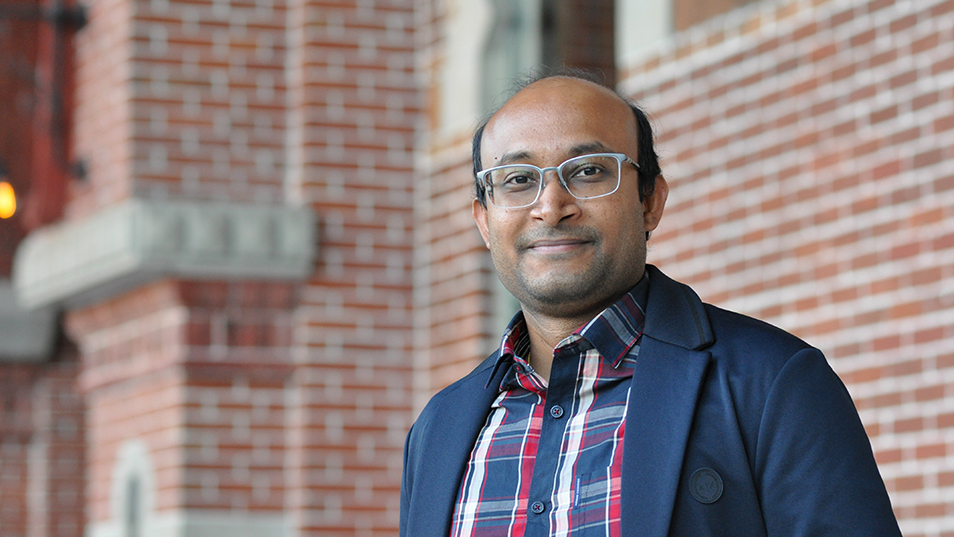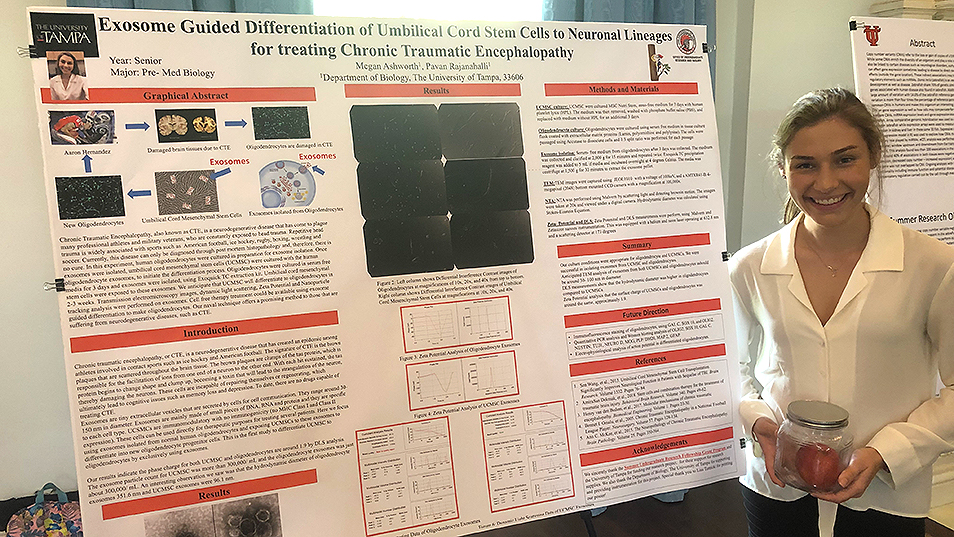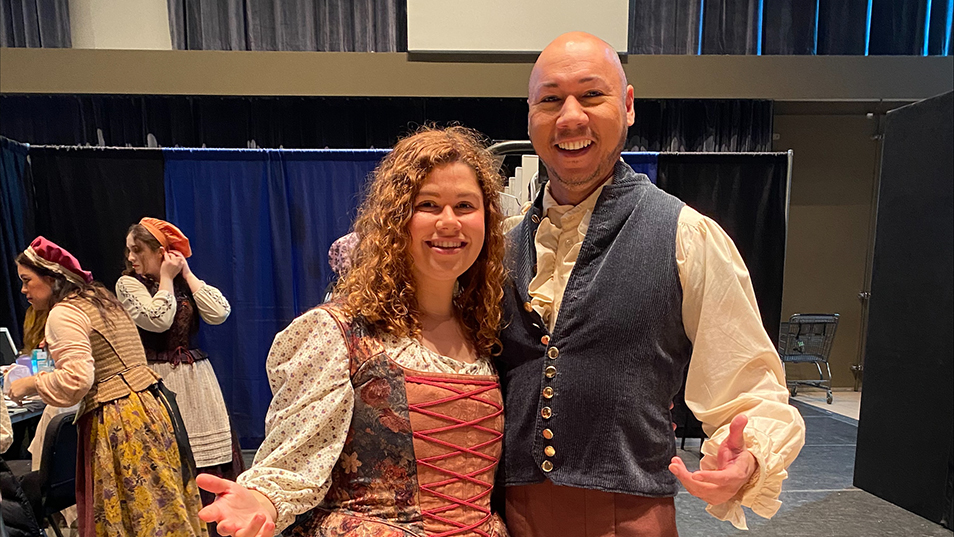Published: January 04, 2021
Brain Gains
You’ve likely heard of chronic traumatic encephalopathy (CTE), a serious brain condition that’s linked to repeated hits to the head and dementia. It can affect people like football players and those in the military. As of now, there’s no treatment.

Pavan Rajanahalli, assistant professor of biology, worked with Megan Ashworth ’20 to study chronic traumatic encephalopathy (CTE).
But two people in the UT community hope to change that someday. Biology major Megan Ashworth ’20 has been conducting research on this topic with Pavan Rajanahalli, assistant professor of biology.
Here’s the gist. A protein in brain cells changes shape with each hit to the head. When the shape of the protein changes, its function changes. After a while, the protein begins to clump and form a toxin that strangles the brain cell from the inside out, killing it. Once a brain cell dies, a human is not able to produce a new one.
The UT research team is hoping to grow new brain cells that could, perhaps someday, be inserted into the brain.

Megan Ashworth ’20 presented her research on chronic traumatic encephalopathy (CTE) at an undergraduate research symposium on campus. Photo courtesy of Ashworth
They’re growing two types of cells right now: human umbilical cord stem cells and specific brain cells called oligodendrocytes in separate flasks in a lab. When brain cells grow, they secrete a microscopic cellular element called an exosome. Exosomes tell a cell what to be. So they’re taking the secreted exosomes from the brain cells and placing them in the flask with the stem cells. In doing so, they’re creating an environment that will hopefully allow the stem cells to grow into oligodendrocytes.
If this is successful, the ultimate goal in the future would be to turn this into a treatment, like a nasal spray that could be easily and quickly administered to those who experience concussions to help treat possible CTE. They’re in early talks with a biotech company and plan to publish a research paper when they have more data.
This story first appeared in the Fall 2020 UT Journal.



